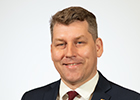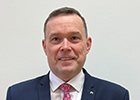Sotsiaalhoolekande seaduse ja tervishoiuteenuste korraldamise seaduse muutmise seaduse (iseseisev õendusabi ööpäevaringse erihooldusteenuse osutamisel) eelnõu (496 SE) esimene lugemine
Istung: XV Riigikogu, IV istungjärk, täiskogu istung
Kuupäev: 2024-10-09 17:07
Osalevad Poliitikud:
Sõnavõtte kokku: 26
Koosseis: 15
Päevakorra kestus: 32m
AI kokkuvõtted: 26/26 Sõnavõtud (100.0%)
Analysis: Structured Analysis
Poliitikute Kõneaeg
Poliitikud
Analüüs
Kokkuvõte
Riigikogu arutas esimesel lugemisel Vabariigi Valitsuse algatatud sotsiaalhoolekande seaduse ja tervishoiuteenuste korraldamise seaduse muutmise seaduse eelnõu 496, mis puudutab iseseisva õendusabi korraldamist ööpäevaringse erihooldusteenuse osutamisel. Sotsiaalkaitseminister Signe Riisalo tutvustas eelnõu, mille peamine eesmärk on viia erihoolekandes osutatava iseseisva õendusabi rahastamine Sotsiaalkindlustusametilt (SKA) Tervisekassa vastutusalasse, sarnaselt 2020. aastal üldhoolekandes läbi viidud reformiga. Muudatuse eesmärk on tagada teenuse ühtlasem kvaliteet ja paindlikum korraldus vastavalt abivajadusele, luues üleriigilise teenuse kirjelduse.
Minister tõi välja, et SKA poolt seni teenuse hinna sees õendusabile kulunud komponent on 1,2 miljonit eurot. Tervisekassa lisab oma vahenditest 1,65 miljonit eurot, suurendades teenuse kogumaksumuse 2,85 miljoni euroni aastas alates 1. jaanuarist 2025. Riisalo tunnistas, et erihoolekanne on jätkuvalt alarahastatud (kaetud vaid 60% tegelikust hinnast) ja teenusele on pikad järjekorrad. Samuti teatas ta, et omaosalus (mis katab elamistingimusi ja toitlustamist) tõuseb kokkuleppel osapooltega 10% võrra. Debatis tõstatati küsimusi teenuse kättesaadavuse, koduhoolduse suuna ning rahastamise läbipaistvuse kohta, eriti seoses Tervisekassa reservide kasutamisega püsikulude katteks.
Tehtud otsused 4
Juhtivkomisjoniks määrati sotsiaalkomisjon, esindajaks Madis Timpson.
Tehti ettepanek võtta eelnõu täiskogu päevakorda 9. oktoobril 2024.
Eelnõu 496 esimene lugemine lõpetati.
Muudatusettepanekute esitamise tähtajaks määrati 23. oktoober kell 17.15.
Aktiivseimkõneleja
Rain Epler (parem) oli aktiivne küsija, keskendudes eelnõu finantsmõjudele. Ta nõudis täpsustusi seoses teenuse mahu miinimumnõuete kaotamisega ja uue rahastamismudeli (1,2 miljonit vs 2,85 miljonit eurot) läbipaistvusega, kahtlustades teenuse tegelikku kokkutõmbamist.
Aseesimees Toomas Kivimägi
AI kokkuvõte
Riigikogu arutab Vabariigi Valitsuse algatatud sotsiaalhoolekande ja tervishoiuteenuste korraldamise seaduse muutmise eelnõu 496 esimese lugemise, mille eesmärk on võimaldada iseseisva ööpäevaringse erihooldusteenuse osutamist, ning ettekandjaks on sotsiaalkaitseminister Signe Riisalo.
Sotsiaalkaitseminister Signe Riisalo
AI kokkuvõte
Riisalo sõnul liigub ööpäevaringse erihoolekandeteenuse rahastus tulevikus tervisekassa alla ning alates 1. jaanuarist 2025 hakatakse selle osutamise kulusid katma tervisekassa vahenditest kokku 2,85 miljonit eurot (1,2 miljonit varem Sotsiaalkindlustusametilt ja 1,65 miljonit juurde), et parandada teenuse kättesaadavust ja kvaliteeti, kuid ressursid on endiselt napid ja järjekorrad püsivad, mistõttu laiaulatuslikku reformi kohe ei saa ellu viia.
Aseesimees Toomas Kivimägi
AI kokkuvõte
Aitäh, Riigikogu liikmed on valmis küsima ja kutsuvad Andres Metsoja vastama.

Andres Metsoja
Profiileerimine Isamaa fraktsioonAI kokkuvõte
Andres Metsoja küsib, kuidas Eesti eri regioonides tagada teenuse kättesaadavus, miks Põhjamaade trend kaldub rohkem koduhoolduse poole, millised sammud on tehtud osutajate leidmiseks ning kuidas 60/40 omaosaluse suhe rahaliselt mõjutaks.
Sotsiaalkaitseminister Signe Riisalo
AI kokkuvõte
Riisalo tõi välja, et erihoolekandeteenused on kättesaadavad 283 asukohas üle Eesti ning vanad hooned on asendatud uute peremajadega, keskendudes kodus elamise ja kombineeritud teenuste laiendamisele ning 24-tunnise abi vajaduse minimeerimisele, kuid mõnel juhul on asutuses viibimine ja tugeva järelevalve vajadus vältimatu ning õendusabiteenuse kättesaadavus laieneb ka asutustes Tervisekassa partnerlusel, ning deinstitutsionaliseerimise eesmärk on jätkuvalt kodus elamise võimaluste suurendamine või asutuste inimeste jaoks kodu sarnase keskkonna loomine.
Aseesimees Toomas Kivimägi
AI kokkuvõte
Toomas Kivimägi palub Rain Eplerit.

Rain Epler
Profiileerimine Fraktsiooni mittekuuluvad Riigikogu liikmedAI kokkuvõte
Rain Epler väljendas, et seaduseelnõu lubab erihooldusteenuse korralduses paindlikkust, kuid miinimumnõuete kaotamine võib teenuse mahtu vähendada ja kvaliteeti ohtu seada, ning ta küsib, kuidas need muudatused kättesaadavust ja kvaliteeti pärast jõustumist mõjutavad.
Sotsiaalkaitseminister Signe Riisalo
AI kokkuvõte
Riisalo ütles, et sisulised teenusekirjeldused toovad selguse, millised täpselt on need tegevused, mida tuleb teha, ning kuidas abivajadust jälgida ja täita, mis parandab teenuse kättesaadavust ja kvaliteeti, ning tulevikus suureneb rahastus 1,6 miljoni euro võrra, kus varem toetas Sotsiaalkindlustusamet erihooldusteenust 1,2 miljoni eest ning Tervisekassa lisab oma vahenditest 1,65 miljonit eurot juurde, et kodus elavatel inimestel oleks õendusabi tagatud.
Aseesimees Toomas Kivimägi
AI kokkuvõte
Aseesimees Toomas Kivimägi palub üles kutsuda Kert Kingo.
Kert Kingo
AI kokkuvõte
Kert Kingo märkis, et eelnõu on hooldereformi osa ning raha viiakse Sotsiaalkindlustusametist üle Tervisekassasse, ning küsis, kas erihoolekandeteenuse tasud tõstetakse.
Sotsiaalkaitseminister Signe Riisalo
AI kokkuvõte
Riigi hooldereformi kontekstis on pikaajaline hooldus keskne ning hõlmab eakate hoolekannet, üldhoolekannet ja koduteenuseid, kuid erihoolduse kliendid on 18+ vanuses tööealised ning lisakoormus perekonnale ja omastehooldajatele, mille osaluse suurendame kõigi osapoolte kokkuleppel 10% peamiselt toitlustuse ja elutingimuste parendamiseks, et teenuse kvaliteeti parandada.

Rain Epler
Profiileerimine Fraktsiooni mittekuuluvad Riigikogu liikmedAI kokkuvõte
Rain Epler rõhutas vajadust täpsustada numbreid: miks kulude kasvuks öeldi 1,65 miljonit, kui seletuskiri näitab 2,85 miljonit, kuidas moodustub 2,8 miljonit ja kus on praegune teenusekulu, et võrrelda uut asutust.
Aseesimees Toomas Kivimägi
AI kokkuvõte
See kõne on pelk palve, mis on suunatud Rain Eplerile.
Sotsiaalkaitseminister Signe Riisalo
AI kokkuvõte
Riisalo selgitas, et erihoolekandeteenuse õenduskomponent on 1,2 miljonit eurot, mille hind sõltub inimese raskusastmest ja ööpäevaringsest hoolduse mahust, ning kuigi kogu eelarve on 57 miljonit eurot, käsitletakse praegu vaid ühte osa ja järgmisel aastal kasvu ei oodata.

Rene Kokk
Profiileerimine Eesti Konservatiivse Rahvaerakonna fraktsioonAI kokkuvõte
Rene Kokk märgib, et erihooldusteenus on viimastel aastatel oluliselt kallinenud ning hooldustöötajate nappus ja madal palk teevad teenuse pakkumise väga raskeks, ning ta küsib, milliseid mõtteid ja ettepanekuid on töös, kuidas neid töötajaid hinnata ja õiglaselt tasustada, et noored sooviksid eriala õppida ja valdkonnas töötada.
Aseesimees Toomas Kivimägi
AI kokkuvõte
Aseesimees kutsus Rene Kokk sõna võtma.
Sotsiaalkaitseminister Signe Riisalo
AI kokkuvõte
Riisalo rõhutas, et tuleb selgelt eristada õendusteenuse osutajaid, hooldajate ja tegevusjuhendajate rolle ning hooldustöötajate palga tõus ja töökohtade kasv hooldereformi käigus on tubli edasiminek (400 uut üldhooldustöötajat ja 800 lisakohta), kuid erihoolekandesse on tekkinud tagasilöök ja 15% tõus oli vajalik konkurentsi hoidmiseks, samas 45 erihoolekandeteenuse osutajat on saanud tegevusloa ja võivad alustada partnerlust Tervisekassaga järgmisel aastal, ning OSKA näitab, et kuigi sotsiaaltöös on palju kvalifitseeritud inimesi, jääb neid tööle vähe töökoormuse ja madala palga tõttu, mida püüame leevendada Euroopa vahendite ja Eesti Sotsiaaltöö Assotsiatsiooniga koostöös, et sotsiaaltöö oleks atraktiivsem ja töötajad paremini toetatud, kuigi see on raske.
Aseesimees Toomas Kivimägi
AI kokkuvõte
Aseesimees Toomas Kivimägi palub Martin Helmet esinema.

Martin Helme
Profiileerimine Eesti Konservatiivse Rahvaerakonna fraktsioonAI kokkuvõte
Martin Helme väidab, et kuigi kogusumma on 57 miljonit ja öeldakse, et see ei kasva, liigub osa rahast Tervisekassasse ning lisaraha tuleb selle vahenditest, mitte riigieelarvest, mis võib alandada erihoolekandeteenuste hindu ja koormata kohalikke omavalitsusi, ning esitab küsimuse, mida kriitikale vastatakse ja millised kohustused või lisakulud KOV-idel kaasnevad.
Sotsiaalkaitseminister Signe Riisalo
AI kokkuvõte
Riisalo ütles, et ööpäevaringset erihoolekandeteenust ei halda kohalike omavalitsuste roll ning kui inimesel puudub lähedane eestkostja, võivad omavalitsused olla eestkostjatena eraisiklikele, kuid see ei tähenda, et teenuse maksed tuleks katta kohaliku omavalitsuse eelarvest; ning Erihoolekandeteenuste Pakkujate Liidu arvutused raha ülekandmiseks Sotsiaalkindlustusametist Tervisekassasse on tehtud täpselt nende aruannetes märgitud õendusteenuse mahu põhjal ning selles osas puudub objektiivne vaidlus.
Aseesimees Toomas Kivimägi
AI kokkuvõte
Toomas Kivimägi tänas ministrit, tunnustas tema põhjalikke teadmisi ja faktitäpsust ning kutsus kaasettekandjaks Riigikogu kõnetooli juhtivkomisjoni esindajana sotsiaalkomisjoni esimehe Madis Timpsoni.

Madis Timpson
Profiileerimine Fraktsiooni mittekuuluvad Riigikogu liikmedAI kokkuvõte
Sotsiaalkomisjon arutas esimesse lugemisse kuuluva eelnõu, käsitles hooldus- ja tervishoiuteenuste rahastust ning palgaküsimusi, ning konsensuslikult otsustas määrata Madis Timpson esindajaks juhtivkomisjonis, võtta eelnõu täiskogu päevakorda 9. oktoobril 2024 ning lõpetada esimene lugemine.
Aseesimees Toomas Kivimägi
AI kokkuvõte
Esimees tänab publikut ja kutsub üles küsimuste esitamiseks, pöördudes seejärel Anti Haugase poole.

Anti Haugas
Profiileerimine Fraktsiooni mittekuuluvad Riigikogu liikmedAI kokkuvõte
Anti Haugas tõi välja, et õendusteenuste osutamine on päris suur probleem, mis avaldub riikliku rahastuse kaudu üldhoolekandeasutustes ning kus kiirabitöötajad tulevad õdedena ja tehakse järjest mitu 24-tunnist vahetust, ning küsis, kas see on jätkusuutlik õdede puuduse tingimustes ning kas 24-tunnised vahetused olid komisjonis arutlusel.

Madis Timpson
Profiileerimine Fraktsiooni mittekuuluvad Riigikogu liikmedAI kokkuvõte
Madis Timpson ütles, et selle kohta komisjonis arutelu ei olnud ning ta jagab isiklikku arvamust alles pärast lavalt lahkumist; seni kohtleb ta sind oma erakonnakaaslasena võib-olla teistmoodi ning pärast kõnet tuleb küsida, sest ta toob ette vaid komisjonis arutatut.
Aseesimees Toomas Kivimägi
AI kokkuvõte
Toomas Kivimägi tänas ning teavitas, et läbirääkimised avati ja suleti, eelnõu 496 esimene lugemine on lõpetatud, muudatusettepanekute esitamise tähtaeg on käesoleva aasta 23. oktoober kell 17.15 ning teise päevakorrapunkti menetlus on lõpetatud.